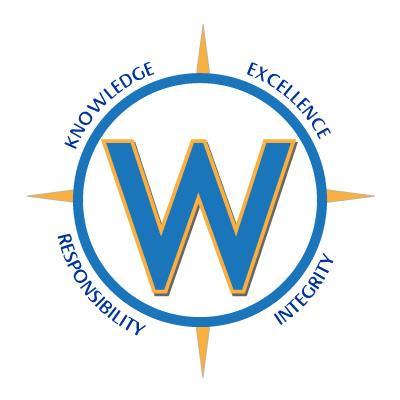

Waterford Public Schools
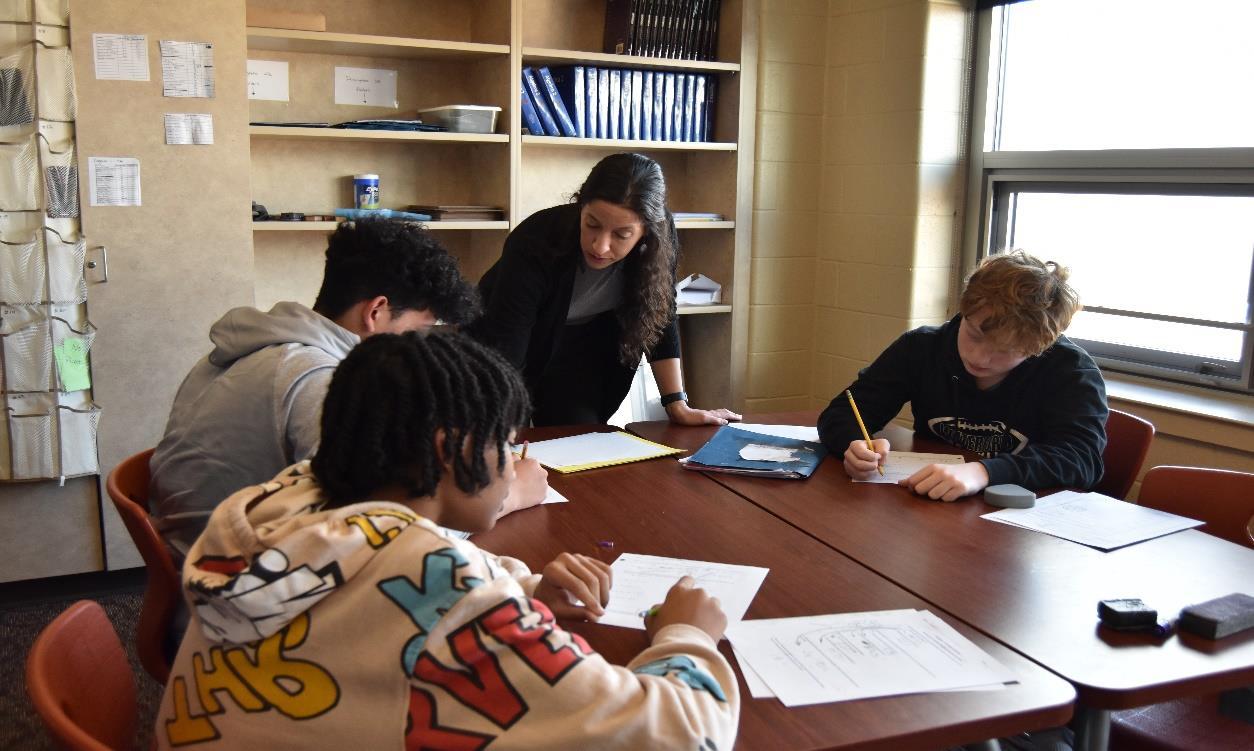
Committee Members
The following staff made significant contributions to the development of the Waterford Public Schools If you Love it, Teach it Curriculum:
Courtney Hesch Waterford High School History Teacher
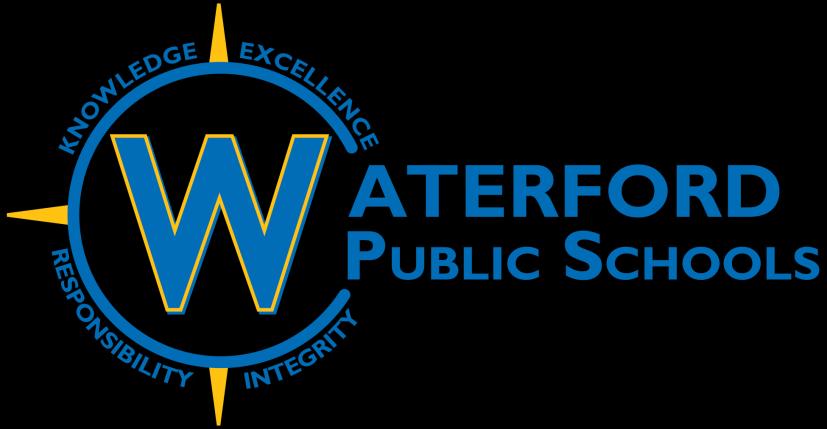

Vision of the graduate

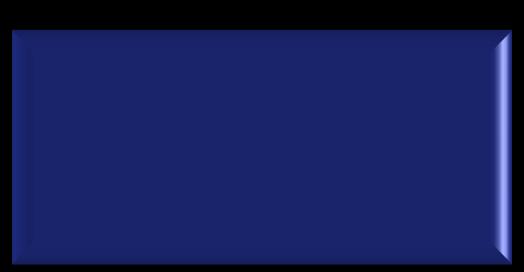
Effective Communicators
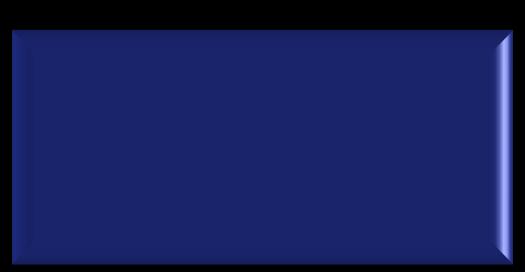
Information Analysts

Critical Thinkers

Self-Directed Learners
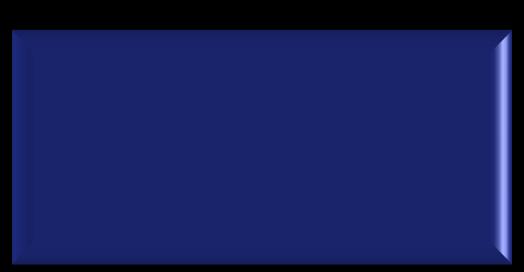
Responsible Citizens
1A: Listen actively to understand information.
1B: Use an appropriate method of communication.
1C: Create a logical and evidence-based argument.
1D: Deliver a clear and effective presentation or performance.
2A: Use appropriate research tools to acquire information from a variety of sources.
2B: Evaluate different perspectives, biases, and levels of credibility.
2C: Analyze information gathered from research tools to demonstrate understanding.
3A: Make reasonable predictions of a real-world issue.
3B: Analyze data in order to justify a claim.
4A: Persevere through challenging situations with flexibility and resourcefulness.
4B: Recognize how thoughts, feelings, and actions affect achievement.
4C: Work independently towards achieving a meaningful goal.
5A: Demonstrate respect for all cultures, identities, and perspectives.
5B: Practice responsible digital citizenship.

Waterford Public Schools is a community of learners that fosters and supports
If You Love it, Teach it
ECE course through UCONN 3 credits, 1 semester
Course description:
One of the most powerful tools you can cultivate is how to distill and share knowledge. The art and science of teaching is transferable to any pursuit where working with people matters. Course topics will include introductions to historical, philosophical, and social foundations of education as well as how those foundations and personal passions relate to teaching as a profession, school organization, educational reform and the reimagining of educational futures. We will also explore how educators consider and value the diversity of students and the variety of their needs in classrooms and schools, creating spaces meant to promote inclusive and equitable outcomes to close opportunity gaps. Students enrolled in this course will engage in a ten-hour field experience where they will observe other educators to broaden their exposure to pedagogical practices.
*** ECE is an Early College Course
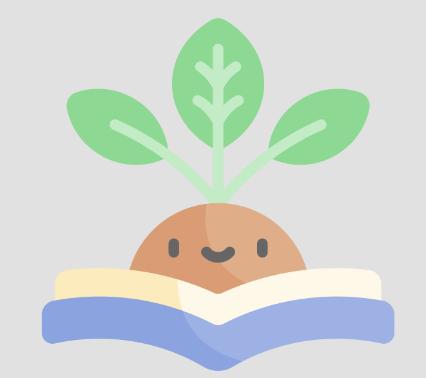
What motivates you as a learner? We start the course by exploring how learning experiences, both in and outside of school, shape aspirations for who you want to become. We compare what people are passionate about with theories and philosophies of education to consider how we might learn best as individuals. Throughout the unit, we reflect in our journals and conversations, prompted by the resources as well as our personal school experience, to describe how we deserve to be educated.
If You Love It, Teach It!: Semester Course
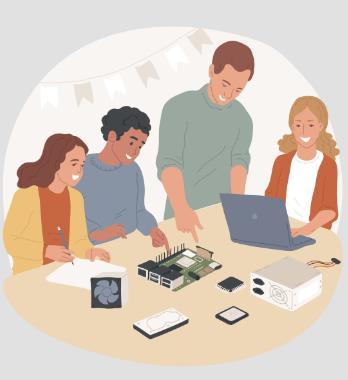
What’s the purpose of school? Our next unit explores the broader context of teaching and learning in American public schools. We examine how societal values have shaped the curriculum and teaching methods over time. Finally, we investigate how the roles and responsibilities of students and teachers have evolved within this changing educational landscape.

How do schools really work? It's not just about textbooks and tests. This next unit focuses on understanding the complexity of the education system and how it impacts pedagogy and practice. Through conversations with experts and analysis of key data, we discover how money, power, and politics at both the local and national levels shape what happens inside classrooms every day.
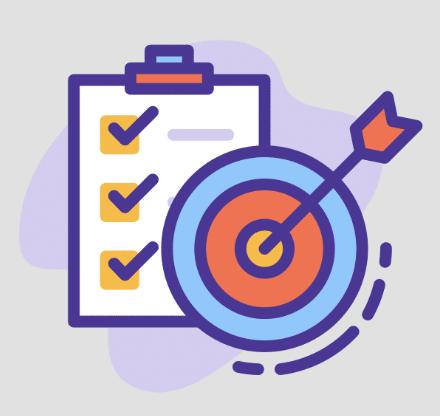
How can we assess the impact of learning? This final unit explores the transformative power of effective assessment. We move beyond grades to understand how assessment can measure learning, foster passion, and truly impact student success. We apply this through the design and teaching of a lesson on an education topic you're passionate about. We then reflect on your real-world classroom experiences, connecting what you've learned in this course to the actual challenges and triumphs of teaching.
Unit 1 The Art of Learning
Course Name: If You Love it, Teach it
Unit 1 Title: The Art of Learning
Unit Overview:
Est. # of Lessons: 6-7
What motivates you as a learner? We start the course by exploring how learning experiences, both in and outside of school, shape aspirations for who you want to become. We compare what people are passionate about with theories and philosophies of education to consider how we might learn best as individuals. Throughout the unit, we reflect in our journals and conversations, prompted by the resources as well as our personal school experience, to describe how we deserve to be educated.
STAGE 1: DESIRED RESULTS
Established Goals
N/A
Understandings
● Knowing who I am strengths, values, interests impacts the way I approach learning and interact with others.
● Teachers who infuse their passions into their teaching spark curiosity and engagement in their students.
● Philosophies of education are grounded in a set of beliefs about learning and its impact on what to teach and how to teach.
Knowledge
● Race, ethnicity, nationality, and culture are distinct but related concepts that can influence how people identify and interact with one another.
● Perennialism focuses on timeless truths and education should impart these ideas through the study of great works.
● Progressivism focuses on student centered learning through collaboration and teachers as facilitators.
● Existentialism focuses on individual choice
Transfer Goals
Self-Directed Learners:
● Persevere through challenging situations with flexibility and resourcefulness
● Recognize how thoughts, feelings, and actions affect achievement
Responsible Citizens:
● Demonstrate respect for all cultures, identities, and perspectives.
Essential Questions
● How can my teacher use my background to make learning more meaningful for me?
● What can my teacher do to build a stronger relationship with me based on who I am?
● How can understanding my passions, interests, and personal experiences shape the way I approach learning?
● How do philosophies of education inform what is valued in society? What philosophies are in alignment with my own learning?
Skills (Framed as Learning Targets)
● I can reflect on and share how passions can shape what we teach and how we learn.
● I can evaluate how my previous experiences as a learner affect my beliefs about education.
● I can recognize and probe to better understand diverse cultural perspectives about teaching and learning.
● I can analyze and compare a range of philosophies of education.
Unit 1 The Art of Learning
and the teacher’s role is to help them discover their passions.
● Early 20th century philosophies of educationDewey and Montessori
STAGE 2: DETERMINE ACCEPTABLE EVIDENCE
Summative Assessment
Thinking Journals:
● Read Service Learning & Prejudice Reduction, reflect on the reading and your beliefs.
● Read Chapter 3 in Education 2010 and reflect on which philosophies of education you most agree with. Also analyze which were used most often in your educational experiences.
In two of your field experience hours, look for evidence of a teacher’s coherence to one of the educational philosophies discussed in class.
Formative Assessment
● Create a circle graph of descriptors you have for yourself. Discuss- how do the dimensions of your identity that you chose as important differ from the dimensions other people use to make judgments about you? How does this apply to teaching?
STAGE 3: LEARNING PLAN
First Topic: My Passion & Life as a Learner
Learning Targets:
● I can reflect on and share how passions can shape what we teach and how we learn.
● I can evaluate how my previous experiences as a learner affect my beliefs about education.
Learning Activities:
Estimated # of Lessons: 3
Essential Questions:
● How can understanding my passions, interests, and personal experiences shape the way I approach learning?
● Reflect and share responses for the following prompts about your schooling experience:
○ What assignments or activities have been the most memorable? Explain.
○ What activities or experiences did you learn the most from? What was it about the activity or experiences that helped you learn?
● What types of learning activities have challenged you the least? Why?
● What are some of your hopes and worries for being a teacher?
● Listen to Taylor Mali’s What Teachers Make slam poem, think about a teacher you connected with and add a line to his poem.
● Read the Conversation article, “Our study found new teachers perform just as well in the classroom as their more experienced colleagues” from March 6, 2023. Reflect on what in a teacher’s background would enable them to begin as effective teachers.
● Create a circle graph of descriptors you have for yourself. Discuss- how do the dimensions of your identity that you chose as important differ from the dimensions other people use to make judgments about you? How does this apply to teaching?
Second Topic: Your Background & Theirs Estimated # of Lessons: 1
Learning Targets: Essential Questions:
Unit 1 The Art of Learning
● I can evaluate how students’ previous experiences as learners affect their beliefs about education.
● I can recognize and probe to better understand diverse cultural perspectives about teaching and learning.
Learning Activities:
● How can my teacher use my background to make learning more meaningful for me?
● What can my teacher do to build a stronger relationship with me based on who I am?
● Watch the TED talk, Pearl Arredondo, “My Story, From Gangland Daughter to Star Teacher” and discuss how personal experiences of hardship shape one's approach to education and teaching.
● Look at the “education as a human right” article and ultimately evaluate how well the world is doing when it comes to providing a free, equal, quality education to our youth. Each student will choose a different country to evaluate.
Third Topic: Educational Philosophies
Learning Targets:
● I can analyze and compare a range of philosophies of education.
Learning Activities:
Estimated # of Lessons: 3
Essential Questions:
● How do philosophies of education inform what is valued in society? What philosophies are in alignment with my own learning?
● Make a clear infographic that presents the material in the Educational Philosophies Definitions and Comparison Chart.
● Compare and contrast, then analyze the Dewey and Montessori proposed purposes of education.
● Visit two classrooms and look for evidence of a teacher’s coherence to one of the educational philosophies discussed in class.
Unit 2 Pedagogy & Practice
Course Name: If You Love it, Teach it
Unit 2 Title: Pedagogy & Practice
Unit Overview:
Est. # of Lessons: 13
What’s the purpose of school? Our next unit explores the broader context of teaching and learning in American public schools. We examine how societal values have shaped the curriculum and teaching methods over time. Finally, we investigate how the roles and responsibilities of students and teachers have evolved within this changing educational landscape.
STAGE 1: DESIRED RESULTS
Established Goals
N/A
Understandings
● The way we talk about education and the terms we use have an impact on the way parents and students perceive and value it.
● The availability of resources with a common pedagogical approach have a significant impact on teaching practice.
● The effectiveness of instruction is only determined by the impact it has on students and student learning.
● The changing purpose of education throughout history (what to teach, how to teach)has led to evolving structures of education.
● Purpose of education is a combination of national need and personal aspiration based on the location.
Knowledge
● Key terms: schooling, education, instruction, and learning possess diverse and nuanced meanings depending on the individual's perspective and experiences.
● In history, schools offered women a means of
Transfer Goals
Effective Communicators:
● Use an appropriate method of communication
● Deliver a clear and effective presentation
Self-Directed Learners:
● Persevere through challenging situations with flexibility and resourcefulness
● Recognize how thoughts, feelings, and actions affect achievement
Responsible Citizens:
● Demonstrate respect for all cultures, identities, and perspectives.
Essential Questions
● What is the purpose of school today?
● How can the language we use to talk about education empower or limit our understanding of what it means to learn and teach?
● How do teacher’s grow their practice to become more impactful for their students?
● How have historical events undeniably shaped our education system, and what are the implications for today's students?
● How can understanding the historical context of school integration inform our efforts to create more equitable schools today?
Skills (Framed as Learning Targets)
● I can analyze the various purposes of school today, considering different perspectives and arguments.
● I can examine the impact of key terms for teaching and learning on how it invites or
Unit 2 Pedagogy & Practice
improving their status and voice.
● Women played a major role in the development of public education and unions.
● Major events throughout American history that informed public education.
● Brown v Board of Ed and Sheff v O’Neill worked to end segregation (de facto and de jure) in schools.
● Schools have evolved based upon the changing norms, needs, and values of society.
Thinking Journals:
excludes certain students, staff, and families.
● I can examine arguments for and against the prioritization of content knowledge, pedagogy, or disposition in teacher effectiveness.
● I can construct a well-supported argument for my own perspective on this issue.
● I can debate the effects of historical events on our current education system.
● I can research and examine a major event (or topic) that had an impact on public schooling.
● I can analyze the role of women in public education throughout history.
STAGE 2: DETERMINE ACCEPTABLE EVIDENCE
● Read Teaching versus Instruction and School versus Education. Do you think language matters?
● Actively listen to the podcast, The Objective of Education. What is the purpose of school today?
● Reflect on the micro lessons, Prudence Crandall story, and resource reviews. What does school integration mean for how we approach schooling, teaching, and learning?
In your two hours of field experience, focus on what strategy the teachers you observed used in class.
● From Dame Schools to Degrees: collaboratively work to create a timeline that traces the role of women in early American education. Groups will research: Dame Schools, Common Schools, Normal Schools, the women teacher rebellion and their role in the development of unions. Teach the class about your topic and analyze how it affected women’s roles outside of the home.
● Micro Teach event for students to choose an “Educational Reform Event” to teach the class. Students will start with the basic lesson plan anatomy (From activation, lecture, participation, and reflection)
STAGE 3: LEARNING PLAN
First Topic: The Purpose & Language of Education Estimated # of Lessons: 3
Learning Targets:
● I can analyze the various purposes of school today, considering different perspectives and arguments.
● I can examine the impact of key terms for teaching and learning on how it invites or excludes certain students, staff, and families.
● I can examine arguments for and against the prioritization of content knowledge, pedagogy, or disposition in teacher effectiveness.
● I can construct a well-supported argument for my own perspective on this issue.
Essential Questions:
● What is the purpose of school today?
● How can the language we use to talk about education empower or limit our understanding of what it means to learn and teach?
● How do teacher’s grow their practice to become more impactful for their students?
Unit 2 Pedagogy & Practice
Learning Activities:
● Actively listen to the podcast, The Objective of Education. Reflect in your journal– What is the purpose of school today?- and be ready for a group discussion on the topic.
● Students will read two articles by Rohan Roberts and Casey Bayer, that offer differing views on the concepts of teaching, schooling, and learning.
● Read Teaching versus Instruction and School versus Education. Reflect in your thinking journal- Do you think language matters?
Second Topic: Pedagogy
Learning Targets:
● I can critically examine arguments for and against the prioritization of content knowledge, pedagogy, or disposition in teacher effectiveness. I can construct a well-supported argument for my own perspective on this issue.
Learning Activities:
Estimated # of Lessons: 4
Essential Questions:
● How can the language we use to talk about education empower or limit our understanding of what it means to learn and teach?
● Jigsaw: Each group will be assigned a famous teacher in history (Socrates, Aristotle, Jesus, Confucius, or Anne Sullivan). They will look into their methods of teaching. The whole group will be looking at patterns between these teachers and debate what made them memorable.
● Read the dispositions of teachers and watch “Teach teachers how to create magic.” Think about the connections between teacher education and the purpose of education. Discuss: In what ways do the knowledge, skills, and perspectives of educators shape how the purpose of education is understood and ultimately realized?
● Watch Passion in Teaching. and then Every Kid Needs a Champion. Which would Neil Tyson Degrasse and Rita Pierson say is the most important trait in an effective teacher: content knowledge, pedagogy, or disposition?
● Debate: Which concept of teaching is the most effective?
● Model a teaching strategy- each student will be assigned one of Yale’s effective teaching strategies. After reviewing the suggestions, each will present a topic using the strategy and create a cliff note version of the suggestions.
Third
Topic: The Historical Roots of Practice
Learning Targets:
● I can debate the effects of historical events on our current education system.
● I can research and examine a major event (or topic) that had an impact on public schooling.
● I can analyze the role of women in public education throughout history.
Learning Activities:
Estimated # of Lessons: 6
Essential Questions:
● How have historical events undeniably shaped our education system, and what are the implications for today's students?
● How can understanding the historical context of school integration inform our efforts to create more equitable schools today?
● From Dame Schools to Degrees: collaboratively work to create a timeline that traces the role of women in early American education. Groups will research: Dame Schools, Common Schools, Normal Schools, the women teacher rebellion and their role in the development of unions. Present to the class about your topic and analyze how it affected women’s roles outside of the home.
● Create a “resource review” for teaching about Native American boarding schools. Model by watching
Unit 2 Pedagogy & Practice
together the documentary: Native Silence-Boarding Schools. Research and evaluate available resources (books, websites, films, etc.) on Native American history and culture, focusing on their accuracy, cultural sensitivity, and suitability for classroom use. Create a curated list of recommended resources for other teachers.
● Visit the Prudence Crandall Museum- Write a reflection that focuses on Crandall's motivations, the community's response, the legal arguments, or the lasting impact of her actions.
● Panel discussion about the legacy of Prudence Crandall and its relevance to contemporary education. Topics include affirmative action, school integration, and the role of teachers as advocates for social change.
● Micro Teach event for students to choose an “Educational Reform Event” to teach the class. Students will start with the basic lesson plan anatomy (From activation, lecture, participation, and reflection)
● Reflect on the micro lessons, Prudence Crandall story, and resource reviews. What does school integration mean for how we approach schooling, teaching, and learning?
Course Name: If You Love it, Teach it
Unit 3 Title: The Education Machine
Unit Overview:
Est. # of Lessons: 15
How do schools really work? It's not just about textbooks and tests. This next unit focuses on understanding the complexity of the education system and how it impacts pedagogy and practice. Through conversations with experts and analysis of key data, we discover how money, power, and politics at both the local and national levels shape what happens inside classrooms every day.
STAGE 1: DESIRED RESULTS
N/A
Understandings
● American public schools are highly driven by the local community it serves.
● A change in one part of an educational system has both predictable and unpredictable consequences that impact the quality of the learning.
● The way schools are organized and funded are based on local and national expectations for the workforce and for citizenry.
Knowledge
● Education reflects the values of a district.
● Typical school structures - budget, demographics, schedules, history/heritage.
● School calendars vary based on tradition, religious majorities, and competition.
Effective Communicators:
● Use an appropriate method of communication
● Deliver a clear and effective presentation
Self-Directed Learners:
● Persevere through challenging situations with flexibility and resourcefulness
● Recognize how thoughts, feelings, and actions affect achievement
Responsible Citizens:
● Demonstrate respect for all cultures, identities, and perspectives.
Essential Questions
● How does where you live and who your family is influence the power of education?
● How have state and national government shaped opportunities for students in schools throughout history? How does that impact local schools?
● How is this public school organized and structured? What impact do these organizations and structures have on the students as they experience teaching and learning?
Skills (Framed as Learning Targets)
● I can share my perspective on schooling using evidence from my own life.
● I can evaluate the impact of government involvement in education on different groups of people throughout history.
● I can evaluate the effects of education governance, school models, and schedules on students and teachers.
● I can design a classroom that fosters a sense of belonging and supports learning.
STAGE 2: DETERMINE ACCEPTABLE EVIDENCE
Summative Assessment
Thinking Journals:
● Research the modern implications of historical school integration laws. Complete the chart using the data on EdSight about school diversity across CT. Reflect on your researchHow would you create and/or advocate for diverse learning environments in schools? Reflecting on your own educational experiences, can you identify any instances where you observed or experienced disparities related to race, socioeconomic status, or other factors that might contribute to segregation within or between schools?
● Read What’s the Purpose of Standards in Education? In your thinking journal respond to the following: The article argues that standards are not a curriculum, but rather an end goal for instruction. How does this distinction resonate with your own experiences in school? Have you ever felt that the focus on standards has limited the depth or creativity of your learning?
● Read From Mass Schooling to Education Programs, write in your thinking journal, and be prepared to discuss: Has the school improvement industry truly improved our schools, or has it simply created a market for its own solutions? What factors led to the shift in emphasis from the educational value of schooling to its credentialing function as mass public education became more prevalent?
In three of your field experience hours, take note of the racial diversity in each classroom and the environments of the schools. Also look for evidence of the learning environment including seating, technology integration, access to resources, and layout
Formative Assessment
● Micro Teach Event: Explore one of the various school models like traditional public schools, charter schools, magnet schools, private schools, homeschooling, and alternative schools. Students will implement and submit the basic lesson plan again.
STAGE 3: LEARNING PLAN
First Topic: The Power of Place
Learning Targets :
● I can share my perspective on schooling using evidence from my own life
● I can evaluate the impact of government
Estimated # of Lessons: 5
Essential Questions:
● How does where you live and who your family is influence the power of education?
● How have state and national governments shaped
involvement in education on different groups of people throughout history.
Learning Activities:
opportunities for students in schools throughout history? How does that impact local schools?
● How is this public school organized and structured? What impact do these organizations and structures have on the students as they experience teaching and learning?
● Research the modern implications of historical school integration laws. Complete the chart using the data on EdSight about school diversity across CT. Reflect on your research- How would you create and/or advocate for diverse learning environments in schools? Reflecting on your own educational experiences, can you identify any instances where you observed or experienced disparities related to race, socioeconomic status, or other factors that might contribute to segregation within or between schools?
● Compare school budgets and diversity in the same and different DRGS. Compare teacher tenure, salaries, and racial make up across states and CT districts.
● Meet with Elizabeth Horton Sheff from Sheff v O’Neill. Interview her about the case and modern implications.
● Standards Comparisons- each student will research CT core standards for teaching and standards from another state. They will compare the two sets based on rigor, focus, and grain size.
● Read What’s the Purpose of Standards in Education? In your thinking journal respond to the following: The article argues that standards are not a curriculum, but rather an end goal for instruction. How does this distinction resonate with your own experiences in school? Have you ever felt that the focus on standards has limited the depth or creativity of your learning?
● Visit classrooms in New London and Waterford schools. Take note of the racial diversity in each classroom and the environments of the schools.
Second Topic: The Power of Resources
Learning Targets:
● I can share my perspective on schooling using evidence from my own life.
● I can evaluate the impact of government involvement in education on different groups of people throughout history.
Learning Activities:
Estimated # of Lessons: 5
Essential Questions:
● How does where you live and who your family is influence the power of education?
● How have state and national governments shaped opportunities for students in schools throughout history? How does that impact local schools?
● How is this public school organized and structured? What impact do these organizations and structures have on the students as they experience teaching and learning?
● Scavenger hunt through the Waterford Public Schools budget.
● Look at the World Bank’s data comparing education systems around the world. Focus on trained teachers and persistence to last primary grade. Develop two conclusions and support it with the data.
● Read A Quality Approach to School Funding. Respond to the critical thinking questions. Watch The Dilemma of School Funding. Be ready to discuss in class the following questions:
● School budget reform often faces political resistance. What are some of the arguments commonly used against reforming school funding? How can advocates for reform address these concerns and build public support for a "quality approach"?
○ The text discusses how funding inequities in education persist despite decades of litigation and reform. How do you see this issue playing out in your own community?
● Meetings with local union representatives. How are budgets and contracts determined? What factors play a leading role in funding decisions?
● Meeting with Board of Education members. How are budgets and contracts determined? What factors play a leading role in funding decisions? Compare the responses you have received from both groups we met.
● Read From Mass Schooling to Education Programs, write in your thinking journal, and be prepared to discuss: Has the school improvement industry truly improved our schools, or has it simply created a market for its own solutions? What factors led to the shift in emphasis from the educational value of schooling to its credentialing function as mass public education became more prevalent?
Third Topic: The Power to Design
Learning Targets:
○ I can evaluate the effects of education governance, school models, and schedules on students and teachers.
○ I can design a classroom that fosters a sense of belonging and supports learning.
Learning Activities:
Estimated # of Lessons: 5
Essential Questions:
● How have state and national governments shaped opportunities for students in schools throughout history? How does that impact local schools?
● How is this public school organized and structured? What impact do these organizations and structures have on the students as they experience teaching and learning?
● What are the unintended consequences of school calendars? Read multiple perspectives on the topic: Cultural Calendar Conflict, Why Balance the 180 Day School Year?, Why Are Their (CT) Calendars So Different?
● Micro Teach Event: Explore one of the various school models like traditional public schools, charter schools, magnet schools, private schools, homeschooling, and alternative schools. Students will implement and submit the basic lesson plan again.
● Explore how the physical environment of classrooms impacts learning. Visit classrooms and observe the learning environment including seating, technology integration, access to resources, and layout.
● Read about the regionalizing schools debate in CT. Would it actually save money? How would it affect student achievement?
● Analyze the different models of co-teaching with special education teachers. Meet with a special ed teacher in WHS to ask about any models used and their effectiveness.
● Design a classroom vision board including bulletin boards ideas, posters, layout, resources, and seating. Think about the tone you want to set, efficiency, organization, and inclusivity.
● Interview our administrators. Focus questions on the design of their school. Questions might include: Can you describe a specific initiative or program you've implemented at Waterford that has demonstrably improved student outcomes or school culture? How much power do you think you have to enact change?
Unit 4 Measuring What Matters
Course Name: If You Love it, Teach it
Unit 4 Title: Measuring What Matters
Unit Overview:
Est. # of Lessons: 11
How can we assess the impact of learning? This final unit explores the transformative power of effective assessment. We move beyond grades to understand how assessment can measure learning, foster passion, and truly impact student success. We apply this through the design and teaching of a lesson on an education topic you're passionate about. We then reflect on your real-world classroom experiences, connecting what you've learned in this course to the actual challenges and triumphs of teaching.
STAGE 1: DESIRED RESULTS
Established Goals
N/A
Understandings
● When used effectively, assessment is a powerful tool that can enhance student learning, improve teaching practices, and ensure that all students have the opportunity to succeed.
● Educational theory and practice should inform and influence each other.
Knowledge
● For many American students, the purpose of education is the grade.
● Learning styles are not founded on science.
● Quality over quantity of homework is important for success.
● Good teachers regularly reflect on their theory and practice.
● Grades are often an incomplete and sometimes flawed measure of student learning.
● Assessments provide the teacher with data that
Transfer Goals
Effective Communicators:
● Use an appropriate method of communication
● Deliver a clear and effective presentation Self-Directed Learners:
● Persevere through challenging situations with flexibility and resourcefulness
● Recognize how thoughts, feelings, and actions affect achievement Critical Thinkers:
● Analyze data in order to justify a claim.
Essential Questions
● What are the limitations of grades as a measure of student learning?
● How can we capture progress and achievement from a learning experience? What’s a good fit across a range of students, subjects, and grade levels?
● To what extent is there a gap between educational theories and practice? Can it be bridged?
Skills (Framed as Learning Targets)
● I can develop an assessment that is an appropriate and accurate measurement of learning.
● I can design a rubric that is useful for both the teacher and student.
● I can deliver a clear and effective lesson.
● I can reflect on my practice and educational philosophy for a variety of purposes.
Unit 4 Measuring What Matters
can be used to inform instruction.
● Homework is not inherently good or bad.
STAGE 2: DETERMINE ACCEPTABLE EVIDENCE
Summative Assessment
Thinking Journals:
● Read and reflect on The Great Homework Debate. How does this connect to your experiences with homework? Which side do you fall on and why?
● Research and reflect: what is the learning styles myth? Why do psychologists suggest the belief could be detrimental to education?
Complete the portfolio to submit to UConn:
- A 1-2 page teaching philosophy that reflects on thinking journals and topics studied in class.
- Reflection on field experience project. This must include a multi-page reflection including what you specifically learned about students, schooling, learning, teaching and the kind of teacher you would like to be.
- Artistic Creations/Meditations on Teaching, Learning, and Schooling- This should include other writing that is reflective of your thinking and learning in this course such as arts-based responses to course activities or texts,activity, documenting outside research, a letter of thanks or a poem of inspiration, a discussion of metaphors or quotes for learning, etc.
In two of your field experience hours, observe an assessment. Analyze what’s being graded, how, and what type of assessment it is.
Formative Assessment
● Rubric redesign: Learn about how to design a rubric. Implement this knowledge by taking an activity from another class that you are in and making a rubric to accompany it.
STAGE 3: LEARNING PLAN
First Topic: Beyond the Gradebook
Learning Targets:
● I can develop an assessment that is an appropriate and accurate measurement of learning.
● I can design a rubric that is useful for both the teacher and student.
Estimated # of Lessons: 5
Essential Questions:
● What are the limitations of grades as a measure of student learning?
● How can we capture progress and achievement from a learning experience? What’s a good fit across a range of students, subjects, and grade levels?
Unit 4 Measuring What Matters
Learning Activities:
● Formative v summative assessments- when are each appropriate to use and what could they look like?
● Read and reflect on The Great Homework Debate. How does this connect to your experiences with homework? Which side do you fall on and why?
● Rubric redesign: Learn about how to design a rubric. Implement this knowledge by taking an activity from another class that you are in and making a rubric to accompany it.
● Research and reflect: what is the learning styles myth? Why do psychologists suggest the belief could be detrimental to education?
Second Topic: Passion Projects
Learning Targets:
● I can deliver a clear and effective lesson.
● I can reflect on my practice and educational philosophy for a variety of purposes.
Learning Activities:
Estimated # of Lessons: 6-7
Essential Questions:
● To what extent is there a gap between educational theories and practice? Can it be bridged?
● Passion Project: Choose a topic in education (Social Justice Education, the use of AI in schools, etc) that we have not studied and that you will use as inspiration to create a full class lesson.
● Passion Project Lessons- each student will deliver a 45 minute lesson using the strategies learned in class. They will create a formative assessment to accompany the lesson.
● Write a one to two page teaching philosophy that includes your views on many of the areas studied in this course. Consider including a quote about education that you agree with and explain why.
